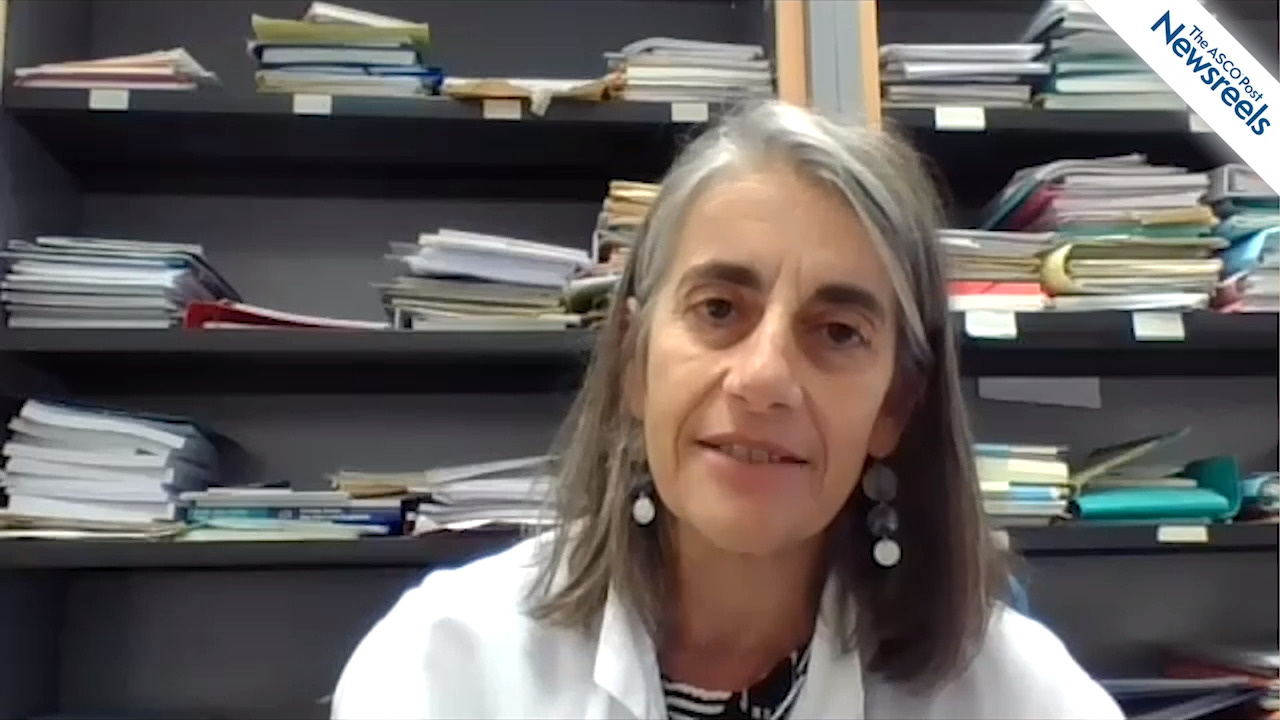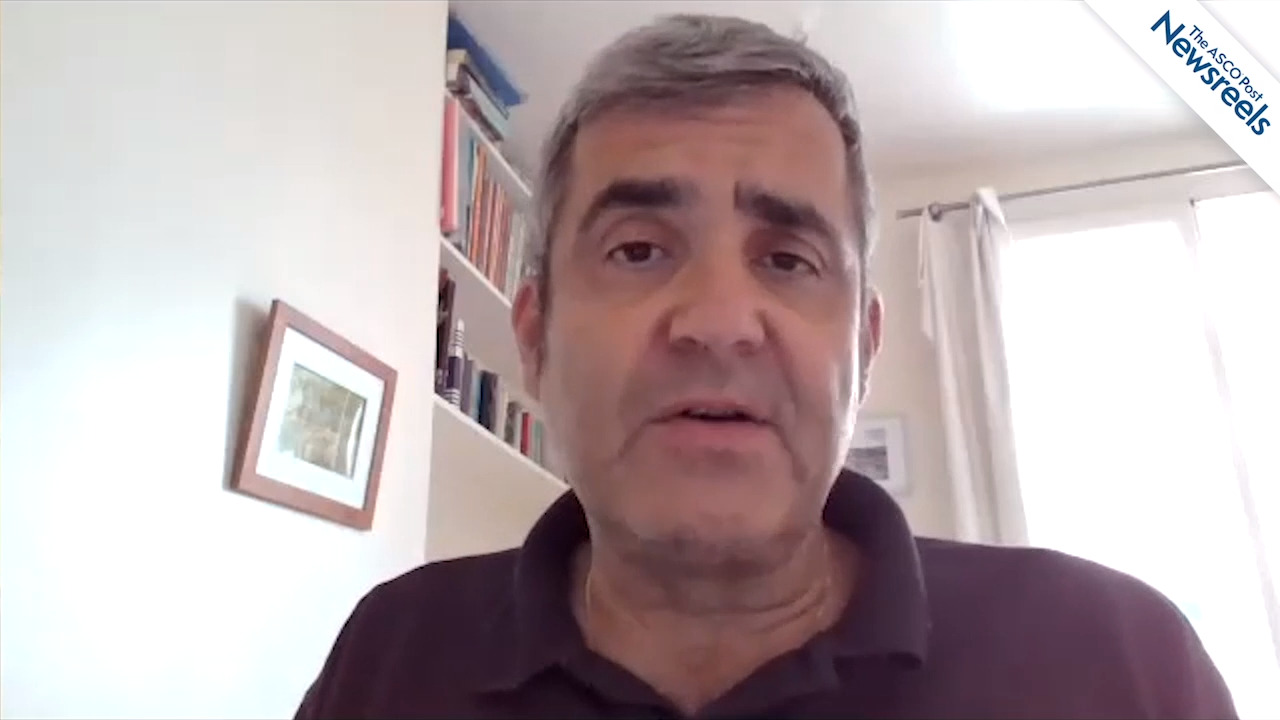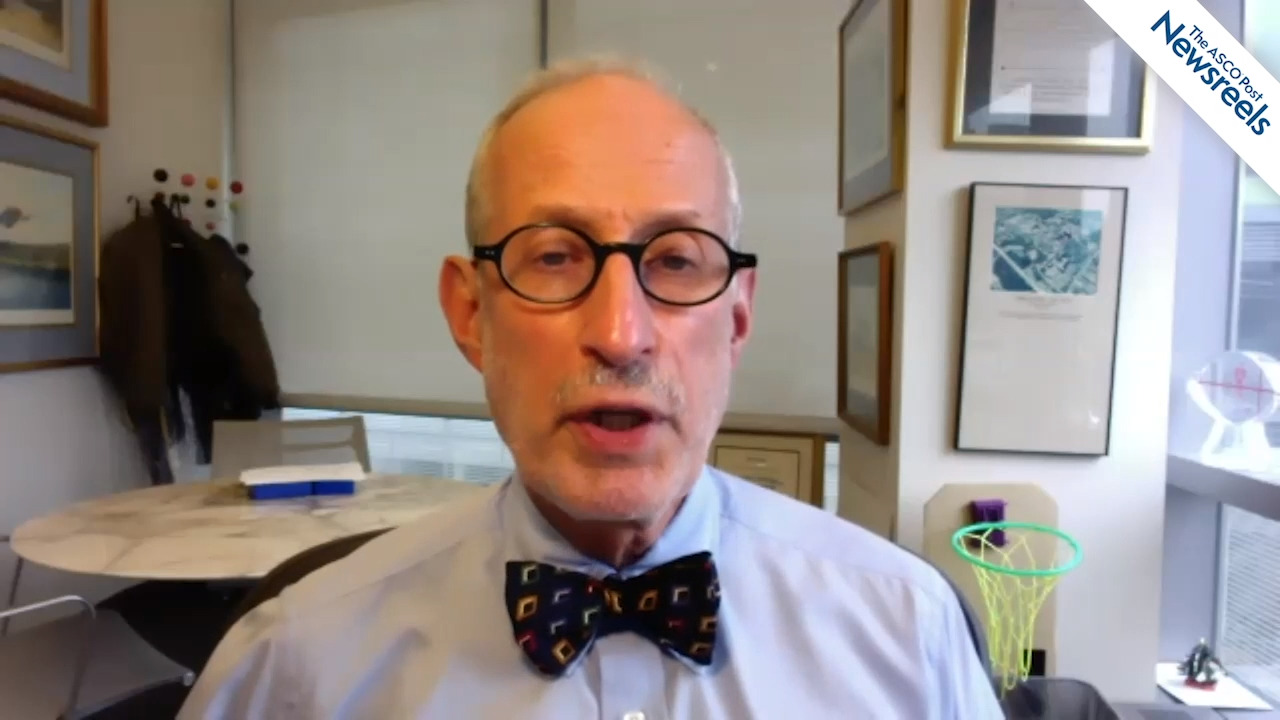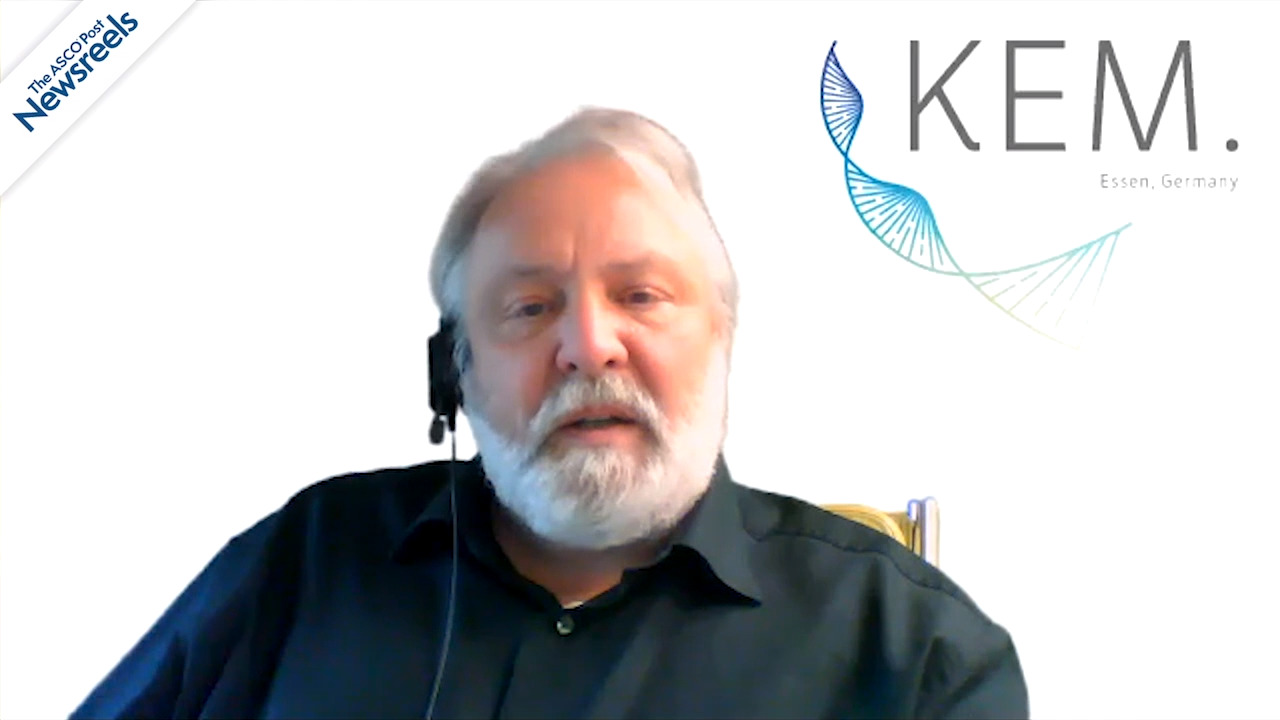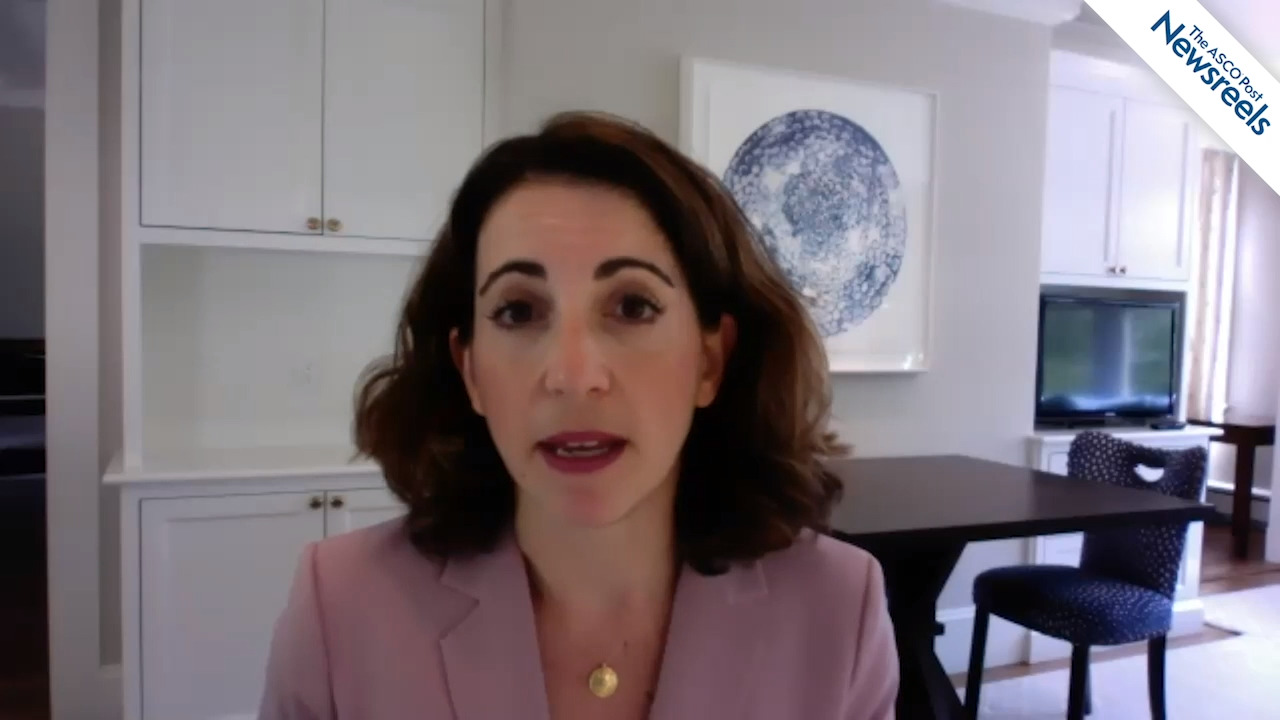Mansoor Raza Mirza, MD, on Endometrial Cancer: Palbociclib Plus Letrozole in ER-Positive Disease
ESMO Virtual Congress 2020
Mansoor Raza Mirza, MD, of Copenhagen University Hospital, discusses phase II study results that showed the combination of palbociclib and letrozole, compared with placebo plus letrozole, improved progression-free survival in patients with estrogen receptor–positive advanced or recurrent endometrial cancer (Abstract LBA28).
The ASCO Post Staff
Cécile Le Pechoux, MD, of the Institut Gustave Roussy, discusses new findings from an international trial on an old controversy: What is the role of postoperative radiotherapy in locally advanced (stage III) non–small cell lung cancer? The researchers enrolled patients with completely resected disease and mediastinal N2 involvement (Abstract LBA3).
The ASCO Post Staff
Thierry Andre, MD, of Hôpital Saint-Antoine, discusses phase III KEYNOTE-177 findings on the reduced risk of disease progression or death in patients receiving pembrolizumab monotherapy as a first-line treatment of microsatellite instability–high and/or mismatch repair–deficient metastatic colorectal cancer (Abstract 396O).
The ASCO Post Staff
Jeffrey S. Weber, MD, PhD, of the Perlmutter Cancer Center, NYU Langone, discusses the 4-year recurrence-free and overall survival results from the CheckMate 238 study, which showed adjuvant nivolumab continues to be an effective treatment, vs the comparator ipilimumab, for patients with resected stage III/IV melanoma (Abstract 1076O).
The ASCO Post Staff
Andreas du Bois, MD, PhD, of Kliniken Essen Mitte, discusses the NORA and INOVATYON studies of patients with recurrent ovarian cancer, detailing the findings for women in China with platinum-sensitive disease and women internationally who received trabectedin and pegylated liposomal doxorubicin (PLD) followed by platinum at disease progression vs carboplatin and PLD after disease progression (Abstract LBA29 and LBA30).
The ASCO Post Staff
Erica L. Mayer, MD, MPH, of Dana-Farber Cancer Institute, discusses an initial analysis of phase III findings from the PALLAS trial, which suggested the benefits observed in the metastatic setting with palbociclib plus endocrine therapy did not translate into the earlier adjuvant setting for patients with hormone receptor–positive, HER2-negative breast cancer. Long-term follow-up is ongoing (Abstract LBA12).
